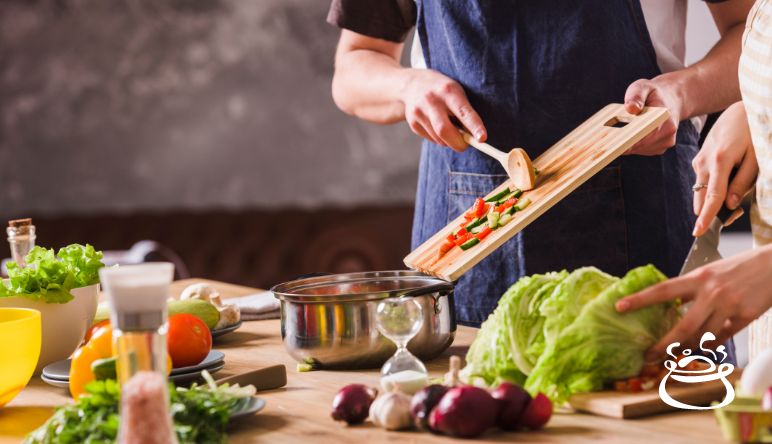Master the Art of Cooking: Best Culinary Programs in Miami
Master the Art of Cooking: Best Culinary Programs in Miami
Blog Article
In Miami, culinary education isn't almost recipes and ingredients; it's a hands-on experience that immerses students in the art and science of cooking. From high schools to specialized culinary institutes, institutions across Miami emphasize the importance of practical learning in shaping aspiring chefs and couples cooking classes Miami. Here's a deeper look at how hands-on learning in cooking techniques is taught in Miami schools and its affect students:

Embracing Practical Learning
One of many cornerstones of culinary education in Miami is its emphasis on practical, hands-on learning. Instead of solely counting on textbooks and lectures, students dive straight in to the kitchen. Whether they're mastering knife skills, learning various cooking methods, or trying out flavors, every lesson is to be able to apply theoretical knowledge in a real-world setting. This process not only reinforces learning but additionally cultivates creativity and problem-solving skills crucial in the culinary world.
Learning from Industry Experts
Miami's culinary schools often invite industry professionals as instructors, offering students insights from those with firsthand experience. These experts not merely teach techniques but additionally share industry trends, tips for success, and practical advice for aspiring chefs. Such mentorship plays a pivotal role in preparing students for the demands of professional kitchens and culinary entrepreneurship.
Culinary Diversity and Cultural Fusion
Miami's vibrant culinary scene mirrors its diverse cultural fabric. Schools here celebrate this diversity by incorporating a wide variety of cuisines and cooking styles into their curriculum. Students learn to understand and master dishes from Latin American, Caribbean, European, and Asian traditions, reflecting Miami's status as a melting pot of culinary influences. This exposure not just enriches their culinary repertoire but in addition promotes cultural understanding and appreciation.
Focus on Health and Sustainability
Modern culinary education in Miami places a solid emphasis on health-conscious cooking and sustainability. Students are taught the importance of using fresh, locally sourced ingredients and sustainable cooking practices. They learn to generate flavorful dishes which are not only delicious but additionally nutritious, catering to evolving consumer preferences for healthier dining options.
Preparation for Culinary Careers
Beyond mastering cooking techniques, Miami schools equip students with essential skills for culinary careers. This includes menu planning, kitchen management, food safety, and the company aspects of managing a culinary enterprise. Internship opportunities with local restaurants and hospitality establishments provide valuable real-world experience and networking opportunities, preparing graduates for success in the competitive culinary industry.
Community Engagement and Culinary Events
Miami's culinary schools often engage with town through culinary events, pop-up dinners, and charity initiatives. These activities allow students to showcase their skills, talk with the general public, and donate to local gastronomic culture. Such engagements foster an expression of pride and accomplishment among students, reinforcing their desire for culinary arts and their role in the community.

Conclusion
Hands-on learning in cooking techniques is more than just a method of instruction in Miami schools; it's a transformative experience that shapes culinary careers and fosters a lifelong appreciation for food and culture. By combining practical skills with industry insights, cultural diversity, and a focus on sustainability, Miami's culinary education institutions prepare students to excel in the dynamic world of gastronomy. Whether aspiring chefs or culinary enthusiasts, students emerge not just with technical proficiency but in addition with the creativity, resilience, and entrepreneurial spirit needed to thrive in the culinary arts.
Report this page